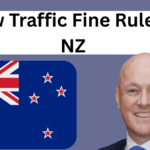The conversation around the New Zealand retirement age change has intensified. The government is actively reviewing current pension policies, sparking national debate on how this could reshape the lives of future retirees. The proposal suggests lifting the retirement age from 65 to 67 over a phased period, potentially beginning in 2026. This move aims to address financial sustainability as the nation’s aging population puts increased pressure on public funds.

Why the Change Is on the Table
The average life expectancy in New Zealand has climbed steadily, with many people now living well into their 80s. While this is good news for longevity, it creates fiscal challenges for the NZ Superannuation eligibility system. Currently, over 800,000 New Zealanders receive superannuation payments, and that number is expected to swell by 50% over the next two decades. The government argues that updating the pension age policy is necessary to ensure long-term viability of the retirement system.
Impact Projection of Retirement Age Change
| Year | Proposed Retirement Age | Est. Eligible Population | Annual Superannuation Cost (NZD) |
|---|---|---|---|
| 2025 | 65 | 820,000 | $18.4 billion |
| 2028 | 66 | 750,000 | $17.9 billion |
| 2030 | 67 | 700,000 | $17.2 billion |
How It Affects Retirement Planning in NZ
If you’re in your 40s or early 50s, this retirement age change means revisiting your financial roadmap. Retirement planning in NZ will need to evolve, focusing more on private savings, investments, and KiwiSaver contributions. Financial advisors are urging middle-aged Kiwis to run new projections and adjust expectations, particularly those who had planned to stop working at 65. Employers may also need to prepare for a workforce that stays longer.
Equity and Access: A Heated Debate
One of the main points of contention is how the change could disproportionately impact manual laborers and those in physically demanding jobs. Critics argue that blanket changes to the pension age policy ignore disparities in health and life expectancy across socioeconomic groups. Some are calling for a more nuanced approach, such as flexible retirement ages based on occupation or health status.
Meanwhile, proponents argue that the change is both fair and inevitable, given demographic trends. They note that similar transitions have occurred in Australia, the UK, and many EU countries.
What Future Retirees Should Do Now
For those nearing retirement, the message is clear: plan early and diversify your income sources. Consider working with a certified planner to assess your options. For younger New Zealanders, the focus should be on building robust long-term investment strategies. The government has indicated it will provide at least 10 years’ notice before implementing any NZ Superannuation eligibility changes, offering time to adapt.
FAQs
What is the current retirement age in New Zealand?
The current age for receiving NZ Superannuation is 65. However, this may begin to shift as early as 2026 if proposed changes move forward.
When will the new pension age policy take effect?
If approved, the transition to a retirement age of 67 would likely begin in 2026 and be completed by 2030.
Who will be affected most by the New Zealand retirement age change?
People currently in their 40s and early 50s will be most impacted, especially if they have not factored a delayed retirement into their planning.
Are there exceptions to the new NZ Superannuation eligibility rules?
No formal exceptions have been proposed yet, but there is growing support for flexibility based on occupation and health status.
How should I adjust my retirement planning in NZ?
Start by reviewing your KiwiSaver contributions, consider diversifying your investment portfolio, and speak with a financial advisor to ensure your strategy aligns with the potential policy shift.
Click here to know more.
Akesh is a talented content writer known for creating captivating and impactful narratives. He understands what resonates with audiences and tailors his content to inform, inspire, and engage. From blog posts and articles to marketing copy, his work consistently combines creativity with clarity. His skillful writing strengthens our brand’s voice and ensures our message leaves a meaningful impression.



